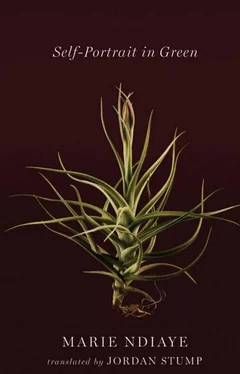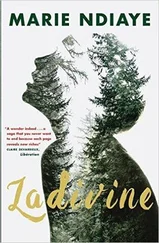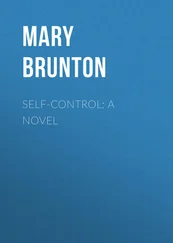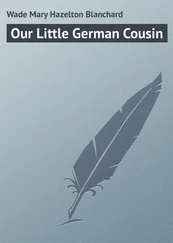Marie NDiaye
Self-Portrait in Green
December 2003 — Evening has come, and the Garonne is rising hour after hour in the dark.
We all know the river can rise nine meters above its banks before it overflows, thanks to the levees surrounding the village.
That much we know. It’s the first thing you learn when you make up your mind to settle in this place, eternally under threat from the floodwaters of the Garonne. What we don’t know this evening is what’s coming tonight, or tomorrow — if, like last time, ten months ago, the water will stop at the top of the levees, or, as it did twenty-two years ago, spill over, submerge the streets, invade the ground floor of the houses, sometimes the second floor, sometimes the whole house.
* * *
We can only wait and watch. Once the level nears eight and a half meters, we’ll be told to park our various vehicles on the plateau, just outside the next village. That hasn’t happened yet.
We can only keep waiting and watching. No sign, for the moment, of the long, slow column of trucks, cars, tractors, campers, and combines rolling through the night, crossing the canal, making for a place the Garonne will never reach.
We wait, we watch. The object of our vigilance is not some Old Man, it’s not le Mississippi , it’s not le Danube or le Rhône ; no one here doubts for a moment that la Garonne’s essence is feminine. She’s brown tonight, heavy, almost bulging.
* * *
2002 — Because it was in front of her house that I saw her each day, for a long time I couldn’t distinguish that green presence from her surroundings.
I drove by, taking the children to school, then I drove by again later, now alone, on my way back, then twice more in the evening, going off to pick up the children and bringing them home, and each time, without exactly meaning to, I glanced at that old farmstead’s front steps and barren yard, and each time my gaze encountered an undefined form that immediately after melded in my memory with the single tree on the lot, a tall, spreading banana tree.
Four times a day, then, I drove by her house. And I looked at her and didn’t see her, and yet a vague unconvinced feeling always turned my head in that direction, though I noticed nothing, ever, but a lovely, surprising banana tree. I stepped on the brake as I drove past, almost at a crawl, and never once did my gaze fail to meet with the still, watchful silhouette of the woman in green standing near the far-more-imposing banana tree, and I know that beyond all possible doubt. Because four times a day my heart was gripped by something unnamable, though not absolutely malign, the moment I passed by the farm with the lone banana tree in its fenced yard, and then afterwards, all along the road to the school, in all sorts of yards, I looked at many, many other banana trees with the most perfect indifference.
But I like knowing names, and, convinced it was not knowing who lived in the farmhouse that was bothering me, I asked around. “Oh, that place? Those are just the X — s,” people said. And it was a common name in the area, and belonged to many other families besides. There was nothing to be had from a name like that, nothing to learn.
One morning I stop the car in front of the house. I shut off the engine, pull the hand brake, then turn to my four children, three of them in the back seat and the oldest beside me in front. It’s a spring morning, warm and glittering. The children’s arms and legs are bare. Their hair shines. The windows are rolled down and the car is filled with the smell of honeysuckle, as if we were all wearing perfume. But my children’s skin smells naturally of honeysuckle, their necks and their cheeks. I smile at them all with the playful squint that announces I’ve come up with a new game. They’re still small. I whisper:
“Look closely at that banana tree. Is there something or someone anywhere near that banana tree?”
And each of my children looks toward the farmhouse, and their attentiveness, their docility, and their concentration, the utter lack of reserve in their obedience, all that brings me to the verge of tears. It’s something else, too. It’s also the nearness of that banana tree, of course, with its leaves so broad that any one of them could enfold my youngest child, it’s also the imminence of a discovery. A golden dust floats above their heads. Their foreheads are curved and serene, their napes still pale. Have I mentioned this? My children’s arms and legs are bare, because the air is warm, intoxicating.
They were a little disappointed.
“There’s nothing at all beside that banana tree,” they whispered.
“Sure?” I asked.
A shiver ran down my back.
“Sure,” said my children, with unmingled certainty.
I turn the key, put the car into gear, and start off a little faster than necessary, not taking a last look back at the farmyard. “You’re the one I need,” I begin to sing under my breath, and when I check the rear-view mirror just to be sure, I can see that my uncalculating, unafraid children are happy, they’ve already stopped thinking about that big banana tree. They’re not thinking about the desolate farmhouse, they’re not thinking about what they didn’t see near the banana tree. We drive slowly, alone on the little road, in the odorous breath, warmer with each passing moment, of a gigantic mouth. That’s how I see all this, but I keep it to myself.
“You’re sure?” I asked my children, my spine suddenly cold.
And since my children never delight in deceiving me, how could I not believe them? But at the same time, how could I answer that I myself had just seen, had just for the first time made out, beside that banana tree, a woman in green? How could I tell them I found it hard to believe they hadn’t seen that woman in green just as clearly as I could now see her, her who until that morning, I realized, had eluded not my eye but my awareness?
Then I said to myself: that woman in green has always been there. She’s there every morning and every afternoon, beneath that banana tree, and she watches us creep past her house, and she sees me looking at her without seeing her.
* * *
What I don’t know is: is she waiting for me? Does she somehow resent not being seen, does it somehow frighten her, or is that just what she wants?
I realize that my children are still in the first stages of this phenomenon, where I myself was stuck until that radiant spring morning when I first found myself seeing a woman in green in her graceless garden, a garden she seems to occupy only at intervals, when it suits her, a garden whose bleakness and blighted look she’s surely not to blame for.
The woman in green is there, every day. Is she still there when I’m not around? I obviously can’t question my children about that. Or can I? My children, with their bare legs and perfect arms, are utterly without guile. Anything they believe, anything they sense, they’ll tell me.
I pull up in front of the school’s lilac. The lilac is covered with little white flowers, and all at once their honeyed scent fills the car. It’s almost more than we can tolerate. I ask my children if their heads aren’t swimming a little, as mine is, and they answer no, and I sense that they don’t quite understand the expression “my head is swimming.” Other children come crowding around the car. Some put their heads through the windows, bringing with them a fresh gust of lilac, and I worry it might nauseate my children. The others’ legs and arms are also uncovered, their limbs are plump, their skin packed tight with hard, dense meat. Every one of these children is friends with my own. All smiles and darkly glinting braces, their faces are puffed up with excitement, with joy, with the many anticipations and unexplored wonders of the day just begun. I feel relieved. I look at those children with an affection full of gratitude. I feel relieved, swollen with kindly thoughts. Before my children get out of the car, I put on a sly voice and ask:
Читать дальше












